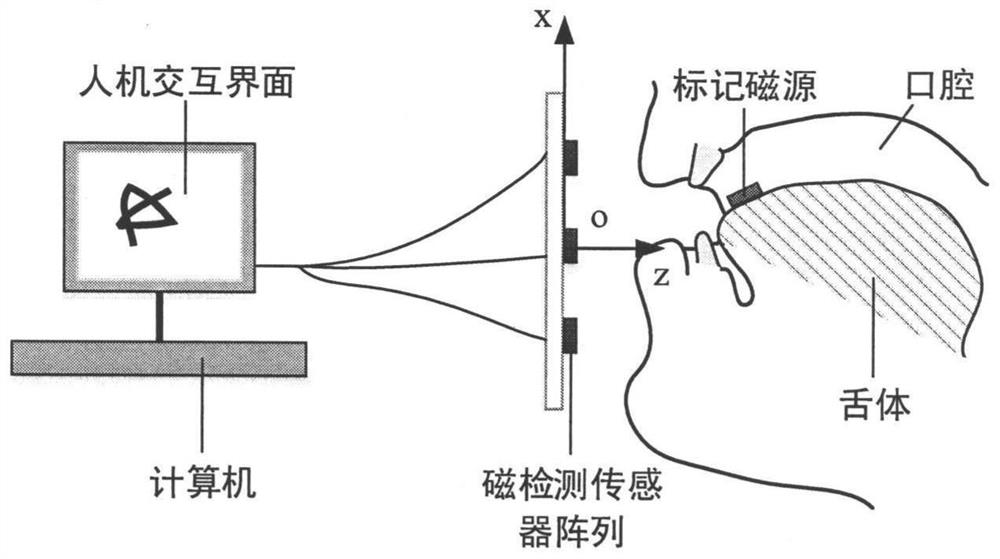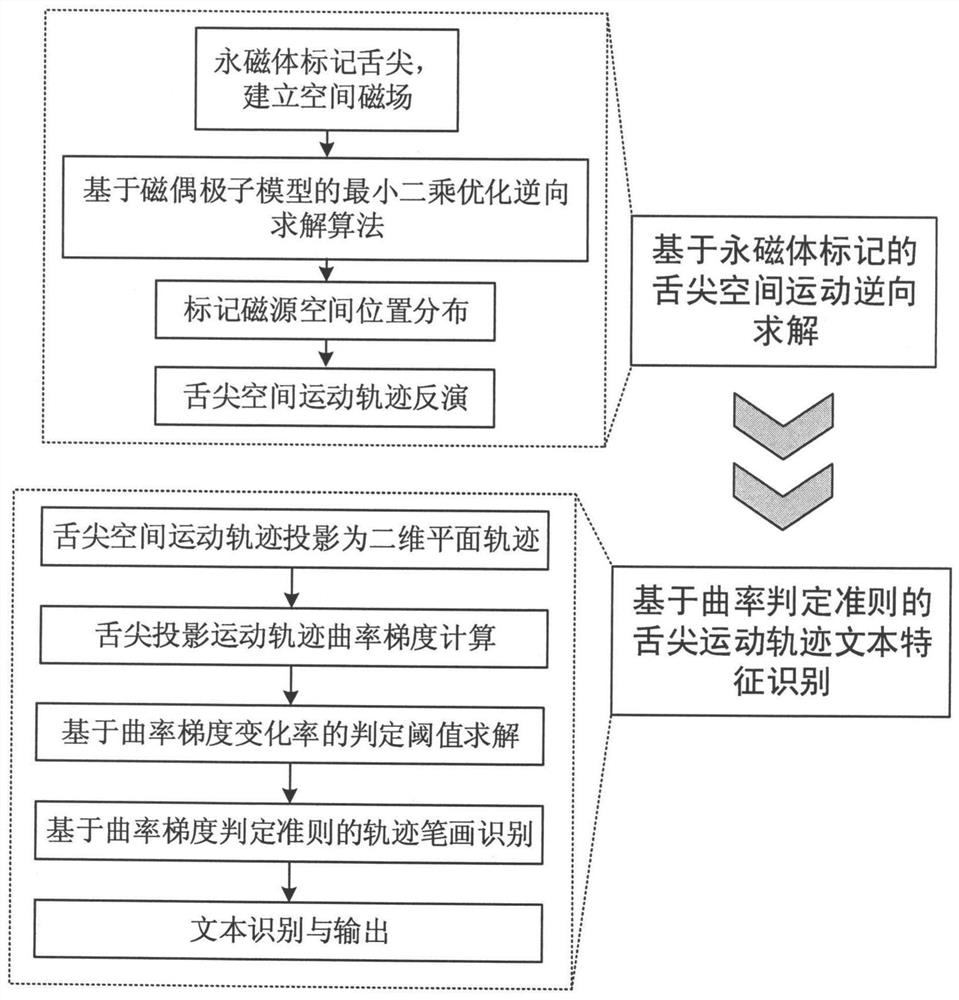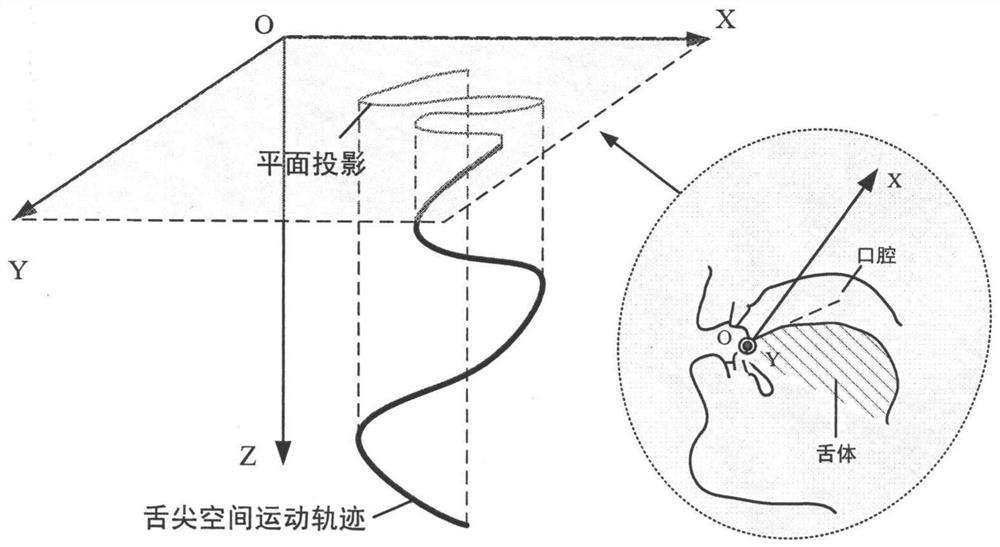Text Recognition Method of Spatial Trajectory Plane Projection Based on Magnetic Marking Tongue Machine Interface
A text recognition and computer interface technology, applied in the field of intelligent human-computer interaction, can solve problems such as difficulty in recognizing spatial text trajectories, narrow activity space, and easy aliasing of tongue tip movement trajectories
- Summary
- Abstract
- Description
- Claims
- Application Information
AI Technical Summary
Problems solved by technology
Method used
Image
Examples
Embodiment Construction
[0027] A text recognition method based on a spatial trajectory plane projection based on a magnetic marker tongue machine interface based on figure 1 The magnetic marking tongue machine interactive system shown in the figure includes a marking magnetic source, a magnetic detection sensor array, and a computer-based human-computer interaction interface. The marking magnetic source is located at the tip of the tongue to be tracked, and the magnetic detection sensor array arranged on a plane faces The mouth, the position relative to the mouth is fixed, detects the magnetic signal, and sends the detection signal to the computer for signal processing and identification. There are no magnetic field sources or ferromagnetic materials other than the marked magnetic source in the marked tongue tip and its vicinity.
[0028] The method for realizing the tongue tip space trajectory plane projection text recognition method mainly includes the following steps:
[0029] Step 1: Magneticall...
PUM
 Login to View More
Login to View More Abstract
Description
Claims
Application Information
 Login to View More
Login to View More - R&D Engineer
- R&D Manager
- IP Professional
- Industry Leading Data Capabilities
- Powerful AI technology
- Patent DNA Extraction
Browse by: Latest US Patents, China's latest patents, Technical Efficacy Thesaurus, Application Domain, Technology Topic, Popular Technical Reports.
© 2024 PatSnap. All rights reserved.Legal|Privacy policy|Modern Slavery Act Transparency Statement|Sitemap|About US| Contact US: help@patsnap.com










